With the increasing demand for flexible workspaces, different types of coworking spaces have been opening up all around the world.
But with so many options available, deciding which is the optimal option for your business can be challenging.
In this article, we’ll look at the benefits of coworking spaces, who should use them, and how to choose the right one for you.
We’ll also look at nine different types of coworking spaces, including:
- Open or shared coworking spaces
- Luxury vs. basic coworking spaces
- Private coworking spaces
- Coworking hotels
- Corporate vs. casual coworking spaces
- Meeting and conference rooms
- Hybrid or virtual office services
- Specialized or niche coworking spaces
- Coliving spaces
Last but not least, we’ll dive into some of the most exciting trends in coworking and answer some of the most frequently asked questions we receive about coworking.
The Benefits of Coworking Spaces
Coworking spaces have surged in popularity because they offer many benefits to a wide variety of professionals.
Some of the advantages of coworking include:
- Increased productivity and focus in a well-designed, comfortable workspace
- Improved daily routine by providing structure and routine
- Professional networking and social opportunities
- Decreased overhead costs and flexible contracts (compared to traditional office space)
- Better work-life balance
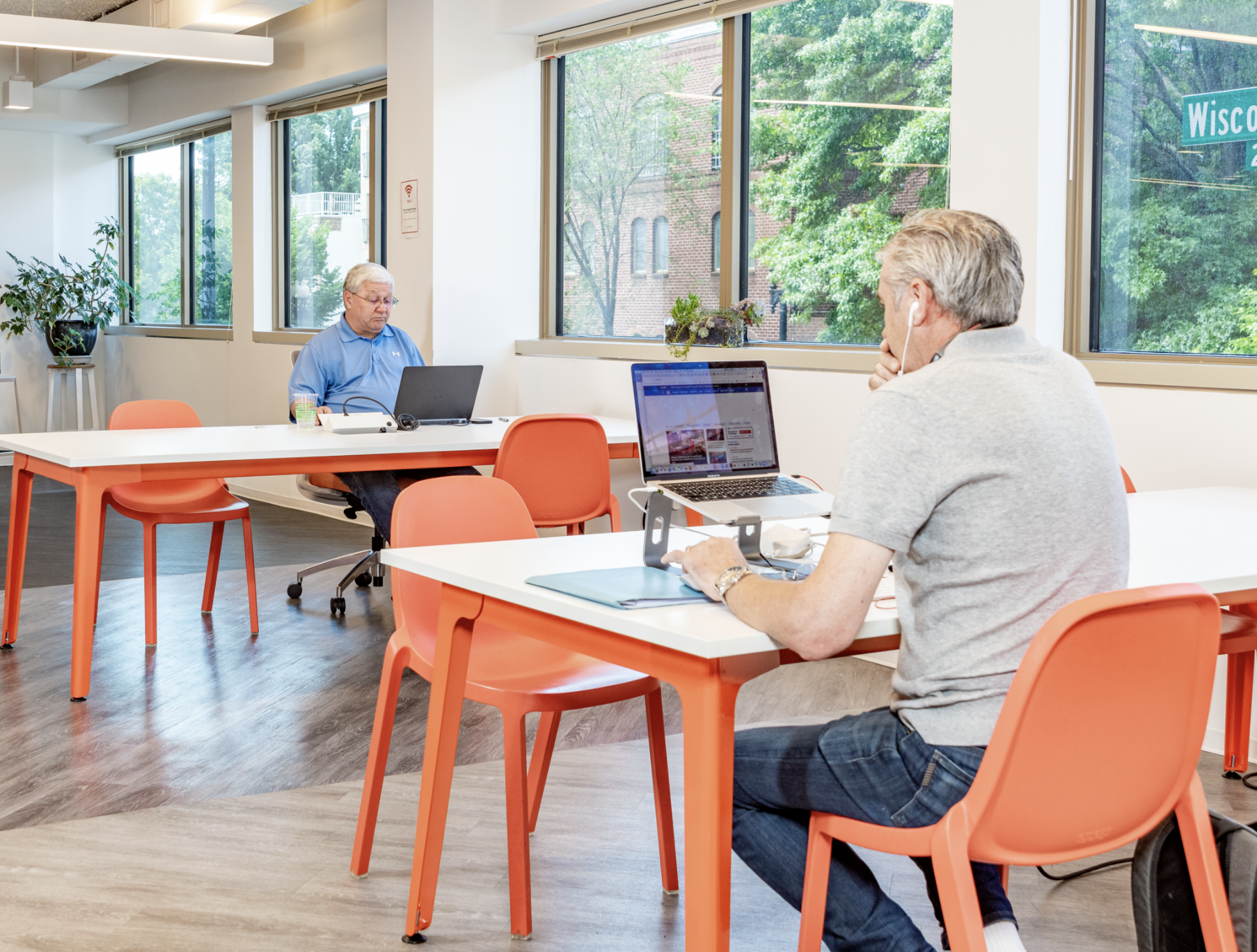
What should a coworking space offer?
Features vary between the many different types of coworking spaces. At the bare minimum, a coworking space needs the basics to allow people to work: tables or desks, chairs, and Wi-Fi.
Most coworking spaces, though, will also include basic amenities such as:
- Bookable meeting rooms
- Printers and scanners
- Couches and lounge areas
- Kitchens with complimentary coffee, tea, or other beverages and food
- On-site staff
Some coworking spaces take things even further with features like:
- Wellness centres with activities like yoga
- Meditation rooms
- Games and activities (i.e., foosball or video games)
- Specialized rooms or equipment for creative fields like podcasting or videography
- Curated member events, networking opportunities, and professional development
The features offered by each coworking space will vary based on membership price, location, and the clientele they cater to.
Some coworking spaces are strictly functional and eliminate any extra bells and whistles for those who don’t want to pay for anything extra that they don’t need.
Others offer an incredible array of amenities and features, elevated design, and best-in-class technology for those who want a high-touch, high-tier experience.
And many are right in between, offering the best of both worlds.
Who can benefit from a coworking space?
Coworking spaces are flexible by design, so they can be a great option for many types of professionals, including:
- Remote workers who prefer to get out of their house
- On-the-go professionals who travel and need a workspace in different cities
- Freelancers or self-employed individuals looking for professional workspace and community
- Small businesses that don’t need or want traditional office space
- Remote teams that need to meet in person periodically
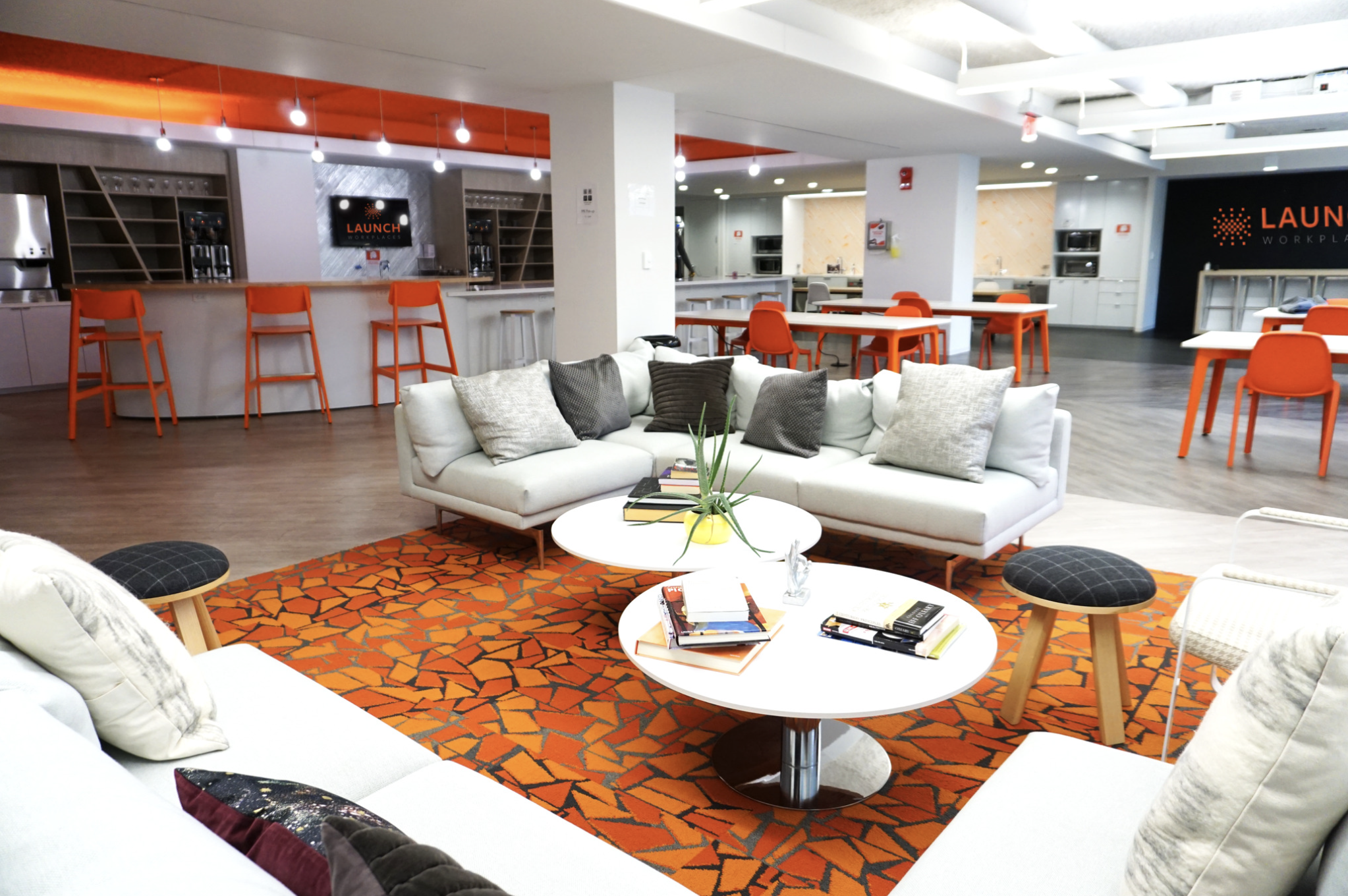
8 Different Types of Coworking Spaces
1. Open or Shared Coworking Spaces
This is likely the most common type of coworking space. It’s the quintessential image that comes to mind when people envision what coworking is. Depending on where you go, you may hear this concept described as “hot desks” or common, shared, and open coworking spaces.
Open coworking spaces include:
- Shared tables, desks, or lounge areas for people to work on their laptops
- No dedicated space to work—you can select a seat wherever you want each day
- Common and shared facilities such as a kitchen, lounge, printer, or other amenities
Some shared coworking spaces also offer dedicated desks within the communal area—a permanent desk reserved for a single worker at all times.
2. Luxury vs. Basic Coworking Spaces
As we mentioned, some coworking spaces offer just the basics—four walls, a desk and chair, and WiFi—while others are appointed with an incredible array of features and amenities:
- Luxury coworking spaces may include things like a wellness centre, food and beverages, or personalized support. Prices for membership are likely to be significantly higher to align with the perks and amenities they offer.
- Basic coworking spaces are, well, basic. The main focus is to provide somewhere to work and attract people looking for low-cost, no-frills options.
3. Private Coworking Spaces
Some individual professionals might choose a private office over an open coworking space. Most common, though, are small teams (2+ people) renting a private office together or businesses utilizing private suites for larger teams.
With a private suite or office, you get:
- A secured and private area
- The option to customize or decorate your workspace
- The option to register your business on Google My Business, which dictates the need for a specific business address
4. Coworking Hotels
Digital nomads and travelling professionals are one of the biggest demographics to benefit from coworking spaces. Access to a workspace and Wi-Fi is essential to get work done while on the road!
Coworking hotels are coworking spaces located in hotels or hostels. Unlike coliving spaces (see #8 below), the sole purpose of these spaces may not be for coworking; they may operate as a hotel with the coworking option as an add-on for travelling professionals.
5. Corporate vs. Casual Coworking Spaces
When deciding on a coworking space, it’s important to consider the clientele who frequent it. Most spaces can be categorized in one of two ways: corporate or professional.
- Corporate coworking spaces cater to businesses or teams of people working together, primarily in private offices and suites. If there are independent workers, they are likely to be in more corporate professions such as law or real estate.
- Casual coworking spaces may attract more solopreneurs, freelancers, creatives, or individual remote workers. Sharing workspaces is more common, as are events and socials to build connections.
While coworking spaces don’t generally make themselves exclusive of any type of professional, they’re generally branded and tailored to lean one way or the other and the community and feel of the space follow suit.

6. Meeting and Conference Rooms
Meeting rooms and event spaces are becoming more popular among the different types of coworking spaces.
On-demand meeting rooms allow companies who don’t typically require an office to access professional and comfortable spaces. They’re usually equipped with audiovisual capabilities like high-speed Wi-Fi and video conferencing equipment.
Professionals who work in open coworking spaces or have a dedicated desk or private office can also take advantage of meeting rooms to host clients or meet with colleagues.
7. Virtual Office Services
Virtual office services are one of the different types of coworking spaces that don’t involve a physical workspace. With a virtual office, you can have all the benefits without the costs or physical space.
Virtual office services can include:
- Mail and package handling services.
- Address services.
- Phone and voicemail services.
- Administrative support.
Adding on part-time or one-off access to a meeting room, office, or coworking space can also benefit hybrid teams and professionals.
8. Specialized or Niche Coworking Spaces
Some different types of coworking spaces are reserved for niche and specialized groups of people.
Some examples include:
- Women-only coworking spaces.
- Technology or other specific industry-focused coworking spaces.
- Coworking spaces for non-profits
These different types of coworking spaces may appeal to their niche audiences with specialized equipment and amenities or through their culture and community environment. They can also provide support and resources that are specific to these niches.
9. Coliving Spaces
Unlike the other options on this list, coliving spaces expand further than just a place to work. They’re spaces where people share living accommodations in addition to coworking areas. Coliving spaces often appeal to digital nomads or people who want to immerse themself in a specific community or location.
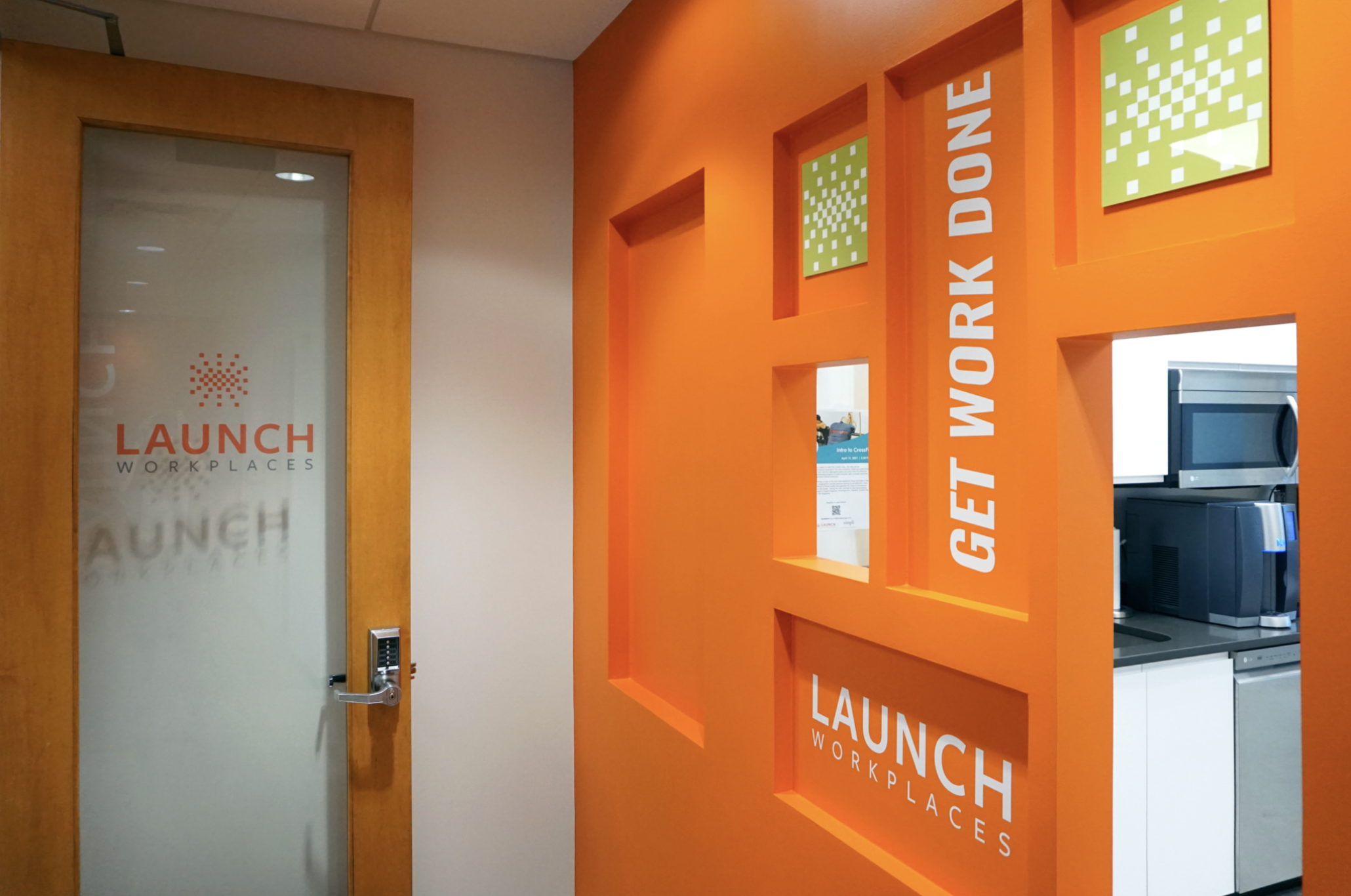
Emerging Trends in Coworking Spaces
As a rapidly-evolving industry, coworking spaces are constantly adapting to meet the ever-changing needs of professionals. Check out a few of the most prominent coworking trends taking place today.
Hybrid Coworking
Hybrid coworking is an emerging trend driven by the growing need for flexibility in how and where people work. In response to the increasingly fluid nature of modern work, hybrid coworking combines the benefits of remote work with the structure and collaborative atmosphere of a coworking space, offering a dynamic solution that suits a variety of work styles.
At its core, hybrid coworking allows professionals to alternate between working remotely and utilizing coworking spaces based on their individual needs. For instance, you might work from home most days but come into a coworking space for your team meetings, project collaborations, or simply to break the monotony of remote work. This flexibility is particularly appealing to freelancers, solopreneurs, and hybrid teams who thrive on both independence and the occasional need for a more structured environment.
What sets hybrid coworking apart is its ability to offer choice. You can your their workspace requirements up or down as ypir workload changes without being tied to traditional office leases. This model is also appealing to businesses looking to offer employees greater autonomy while still providing access to high-quality amenities like private offices, meeting rooms, high-speed internet, and networking opportunities with other professionals.
As the trend gains momentum, coworking spaces are adapting to meet these evolving needs, offering flexible membership options like part-time access, day passes, or hybrid team packages that blend remote work with coworking access. Ultimately, hybrid coworking represents the future of work, providing professionals with a balance of independence and community that supports productivity, creativity, and well-being.
Sustainable Coworking
As environmental awareness grows, sustainable coworking has emerged as a powerful trend in the coworking world. Driven by the urgency of climate change and a global push toward sustainability, coworking spaces are adopting green practices to reduce their ecological footprint. These spaces aim to foster a culture of sustainability while creating work environments that are eco-friendly and efficient.
Sustainable coworking spaces implement a variety of practices to minimize their environmental impact. Every detail counts, from using sustainable materials in construction and furniture, like certified wood, recycled materials, or locally sourced products, to designing energy-efficient spaces. Sustainable coworking spaces often incorporate energy-saving technologies such as motion sensors, LED lighting, and smart heating systems to reduce electricity consumption. Many also prioritize reducing waste through comprehensive recycling, composting programs, and offering reusable materials in place of single-use items.
Another aspect of sustainability in coworking is promoting eco-friendly transportation. Many sustainable coworking spaces encourage the use of public transportation, carpooling, and cycling by offering bike storage, EV charging stations, or discounts for members who use green transport methods. These spaces align with a broader shift toward reducing carbon emissions, helping members feel part of a meaningful effort toward climate action.
Beyond the environmental benefits, sustainable coworking spaces can also lead to cost savings by lowering energy and water bills and reducing overall operational costs. This trend also boosts the image of coworking spaces, attracting environmentally conscious members and businesses who share similar values. Sustainable coworking not only minimizes environmental impact but also serves as a key player in combating climate change, allowing workspaces to be part of the solution.
Inclusive Coworking
The importance of diversity and inclusion in the workplace has led to the rise of inclusive coworking, where spaces are designed to welcome people of all backgrounds, experiences, and abilities. This trend reflects a broader societal shift toward embracing diversity and fostering equity in all aspects of life. Inclusive coworking spaces celebrate diversity in all its forms—whether it’s gender, race (read our guide featuring 23 resources to elevate your anti-racism journey for growth), sexual orientation, disability, or socioeconomic status—and ensure that everyone feels valued and supported.
Creating an inclusive coworking space means removing physical and societal barriers that might prevent people from fully engaging in the workspace. This includes ensuring accessibility for people with disabilities by offering ramps, elevators, adjustable workstations, accessible bathrooms, and even software to assist those with impairments. Beyond physical space, inclusivity is about creating a welcoming atmosphere where diversity is embraced and every individual is encouraged to thrive.
Affordability is another key element of inclusive coworking. Many spaces are adopting flexible membership options and offering sliding scales or discounted memberships to ensure that individuals from a range of economic backgrounds can access the space. Some inclusive coworking spaces also provide specific support programs, such as mentoring initiatives for underrepresented groups or professional development resources for those facing unique challenges.
The heart of inclusive coworking is cultivating a respectful, tolerant work environment. This involves establishing clear policies against discrimination and harassment and providing support systems for those who encounter bias. By fostering a culture of acceptance and actively promoting diversity, inclusive coworking spaces not only reflect the values of equality and fairness but also contribute to building a more diverse and empowered workforce.
Frequently Asked Questions About Coworking
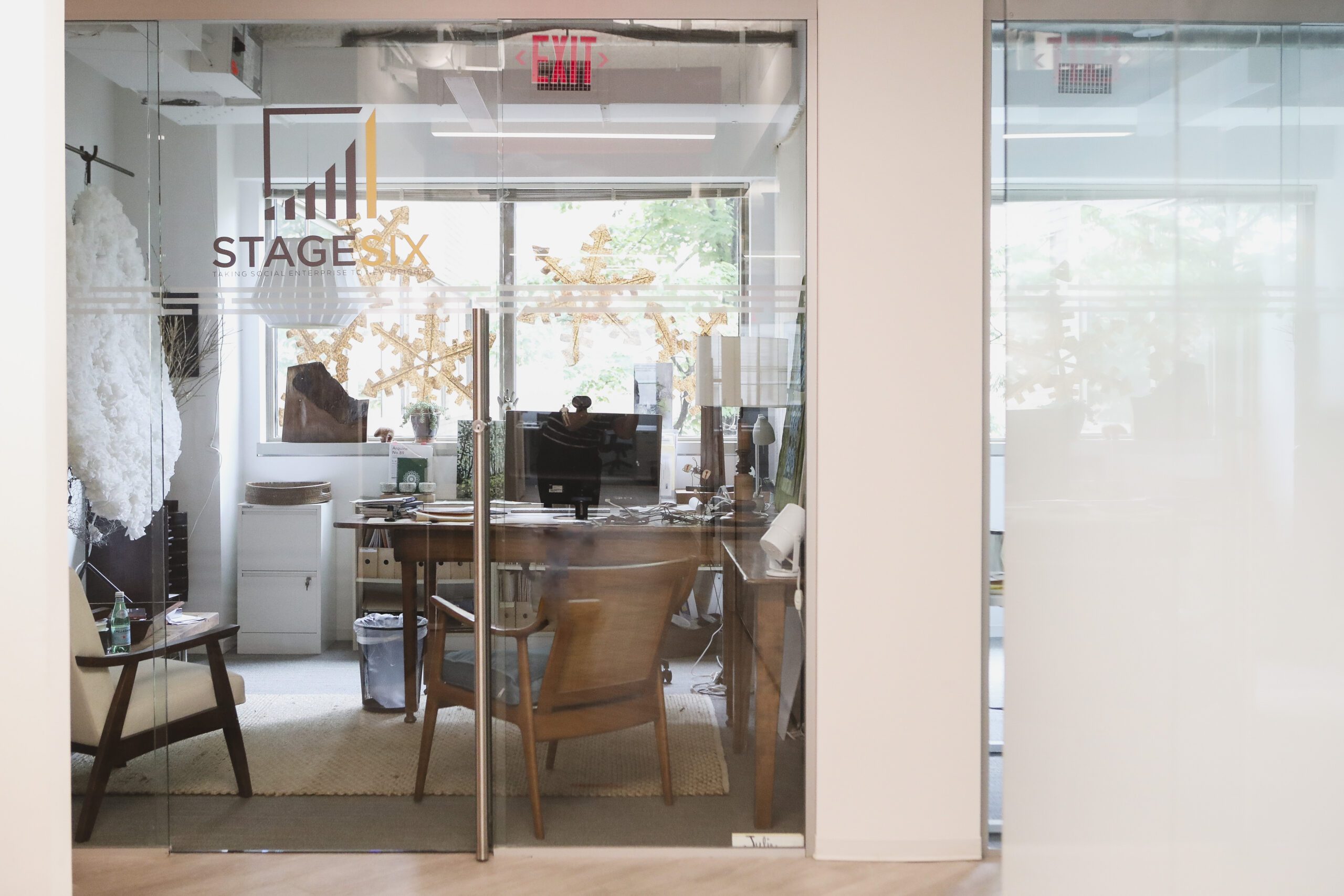
While coworking is growing in popularity, there are still some question marks. So, we’ve rounded up a few of our most frequently asked questions about coworking spaces.
What is the Difference Between Coworking and Traditional Office Space?
Coworking spaces offer more flexibility and community compared to traditional office spaces.
With coworking, you typically pay for what you need—whether it’s a dedicated desk, private office, or access to common areas—without the long-term lease commitments required in a traditional office.
Coworking spaces also provide shared amenities like meeting rooms, high-speed internet, and networking opportunities with other professionals.
On the other hand, traditional office spaces often require longer leases and come with more fixed costs, leaving you responsible for furnishing and maintaining the space.
Coworking is ideal for people or businesses looking for a cost-effective, adaptable, and collaborative work environment.
Can I Use a Coworking Space to Host Events?
Can I Bring Clients to a Coworking Space for Meetings?
Yes, you can bring clients to a coworking space for meetings. Most coworking spaces offer professional meeting rooms or private areas designed to accommodate discussions, presentations, or collaborative sessions. These spaces are usually equipped with high-speed internet, conference call capabilities, and presentation tools, creating a great setting for client meetings.
Coworking spaces also offer a professional atmosphere without the formality of a traditional office, so you can make a strong impression while keeping things relaxed and comfortable. With amenities like coffee, comfortable seating, and even a friendly reception team to greet your guests, coworking spaces provide a flexible, polished environment that’s perfect for meeting with clients.
This option gives you the flexibility to have professional client interactions without needing a long-term office lease, which can be especially useful if you meet with clients occasionally or work remotely.
Are Coworking Spaces Suitable for Large Teams or Companies?
Yes. If you’re an established enterprise, a large company with satellite teams, or even a medium-sized business that’s hit a high-growth phase, coworking spaces can be a great option for you.
These office spaces for large companies offer a few essential benefits to your team and your business, including:
- Networking and socialization opportunities
- Valuable employee engagement and productivity benefits
- Significant cost-effectiveness and flexibility
For example, at Launch Workplaces, we offer:
- Private Offices: The perfect balance of exclusive space and community access, our ultra-secure private offices act as a permanent home for you to grow your business. Whether you’re an independent professional or you have a full-sized team, our private offices offer move-in ready convenience with access to our full suite of in-house amenities, shared office spaces, and member events.
- Team Suites and Enterprise Solutions: Maximize flexible office space with Launch Workplaces’ customizable Team Suites and Enterprise Solutions, fit for teams of 10 to 100+ employees. Reduce your real estate expenses while enhancing your team’s access to all-inclusive office facilities. Give your employees the freedom to work from anywhere with Launch Workplaces’ multiple locations and move-in ready large offices.
To learn more, read our resource: Why Coworking Means Better Office Space for Large Companies.
How to Choose the Right Coworking Space
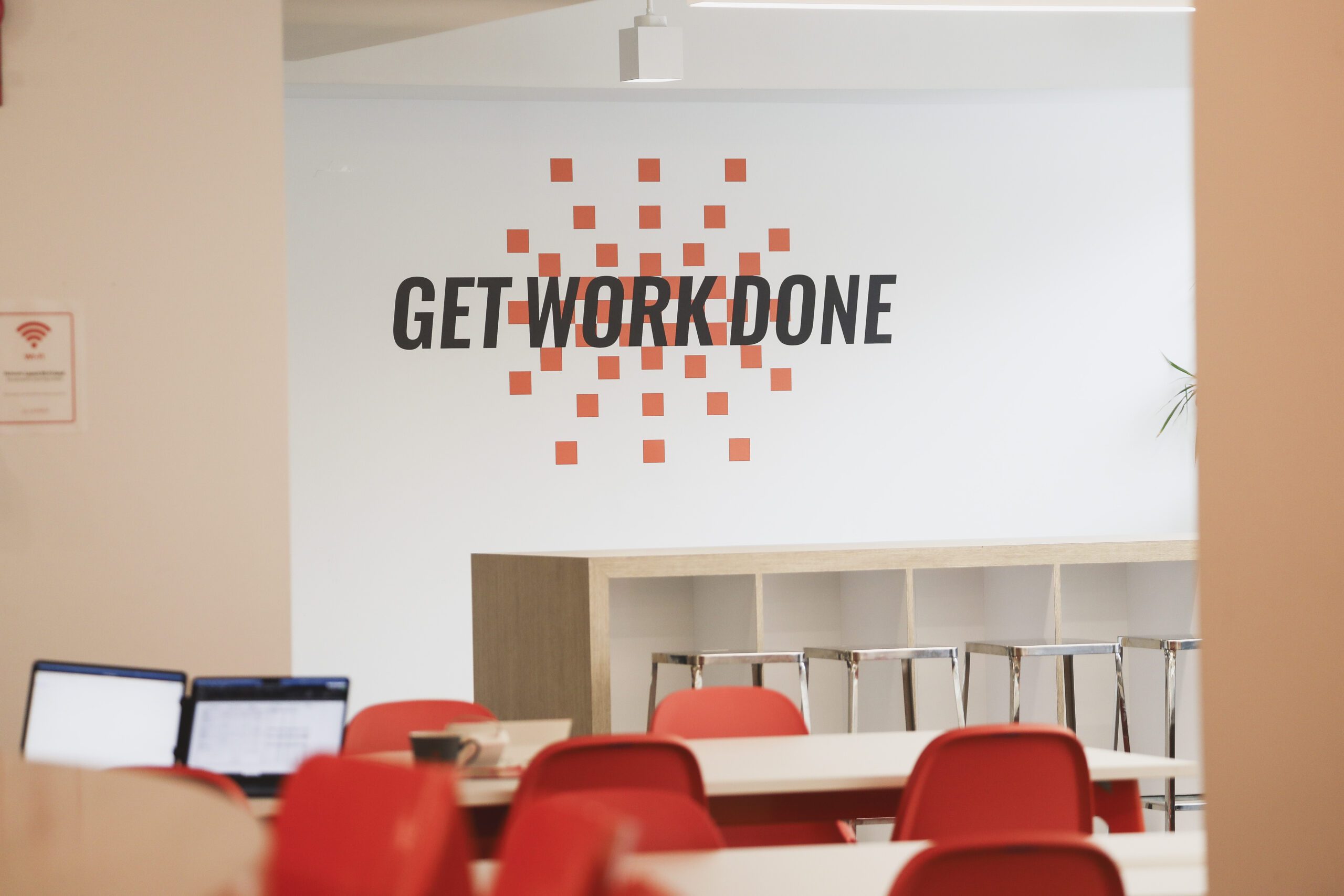
Many locations will combine a few of the options on this list, such as open workspaces, private offices, and meeting rooms. Others are more focused on one thing, such as the specialized coworking spaces or those that cater specifically to companies who need corporate suites.
But besides the type of coworking space, there are other factors to consider. Some of the things to look for in a coworking space include:
- Location and accessibility, including whether it’s a rural or urban area—consider the clientele different locations will serve
- Perks and amenities, such as what’s available with luxury vs. basic or corporate vs. casual coworking spaces
- Community and atmosphere
- Event offerings
- Workspace design and layout
- Price, including membership options and terms
There are a lot of factors to consider, so don’t hesitate to check a few spaces out and see what works for you. Consider going for an in-person tour so you can get a sense of the coworking space and have your questions answered.
Launch offers flexible coworking and private office space along with other services such as virtual office services and meeting room space. If you’re looking for a coworking space where you or your team can get great work done, book a tour of your local Launch Workplace today.



